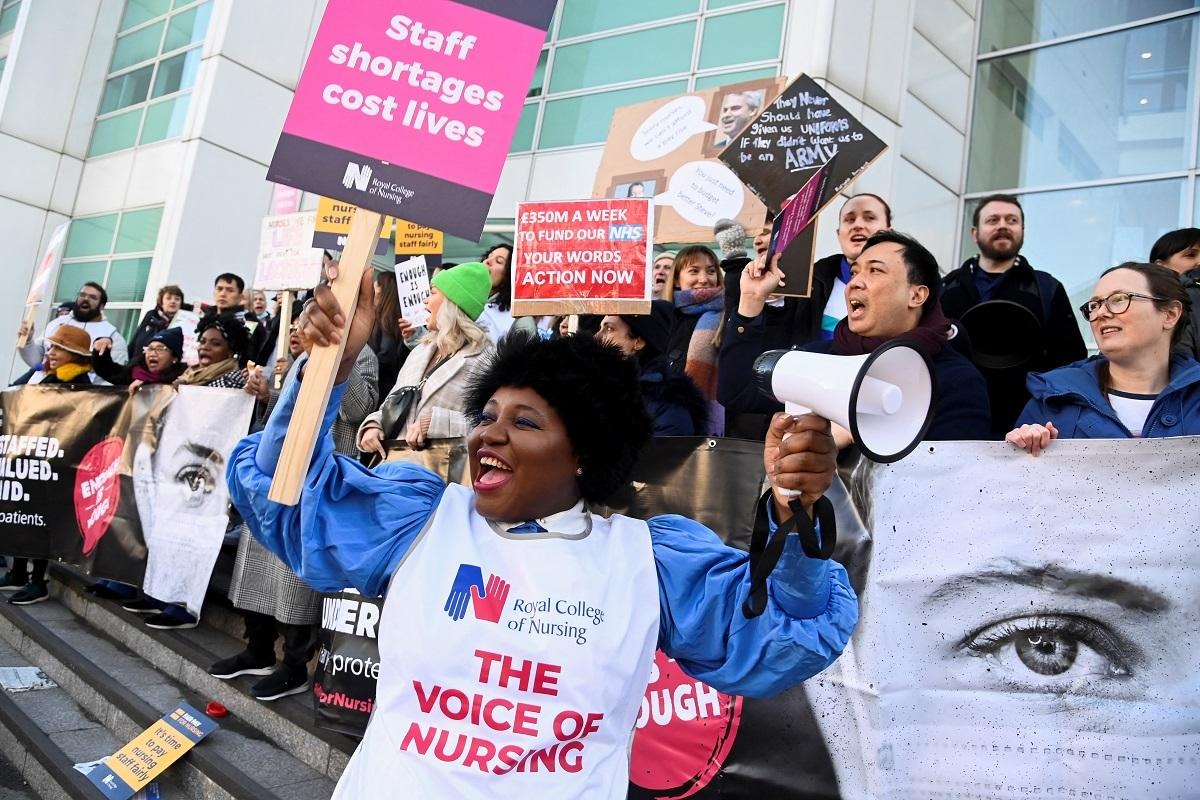The recent pushback from British government workers against mandates to return to the office serves as a remarkable indication of broader sentiments among government employees globally, including in the U.S.
In Britain, a striking 73 percent of the Office for National Statistics staff voted to strike in demand for continued flexibility, highlighting a critical issue: the autonomy to decide where they can be most productive.
This growing trend of discontent mirrors challenges within the U.S. federal workforce, where the debate over telework is becoming increasingly contentious.
Despite pressure from Congressional Republicans and the Democratic mayor of Washington for federal employees to return to their offices, federal worker unions are firmly defending their members’ right to flexible working arrangements.

UK Statistics Agency Staff Threaten Strike Over Return to Office (Credits: Bloomberg)
For example, the union representing 42,000 Social Security Administration workers has strongly opposed reducing telework, particularly as employees are recalled to headquarters.
Union leader Rich Couture emphasized the concern that reductions in telework might be retaliatory rather than strategic, underscoring a potential trust gap between federal employees and administration executives.
Federal Workers in the U.S. Are Legally Prohibited from Striking
This tension is highlighted by the role of the Federal Service Impasses Panel, which resolves deadlocks in collective bargaining, including those related to telework. The panel’s Chairman, Martin Malin, points out the complexity of balancing organizational needs with employee preferences, illustrating the delicate nature of these negotiations.
The situation in the UK should serve as a cautionary tale for U.S. policymakers. The resistance against rigid return-to-office mandates there offers a clear warning: such policies can diminish trust and morale within organizations.
Instead, there is an outstanding need for dialogue and collaboration to create policies that genuinely reflect a partnership between employers and employees. Although federal workers in the U.S. are not legally permitted to strike, the pushback from federal unions against return-to-office mandates highlights similar frustrations.

British Government Workers (Credits: GMA Network)
The White House Office of Personnel Management’s annual report supports this sentiment, showing that telework seriously contributes to government efficiency and employee satisfaction.
It reveals that 62 percent of federal managers believe telework is essential for attracting skilled professionals, and those who telework regularly are more likely to remain in their positions, with 68 percent expressing a strong intention to stay.
Engagement levels are also higher among teleworkers, with 77 percent feeling more connected to their work, compared to their office-bound counterparts. Meanwhile, 84 percent of employees and managers agree that telework enhances work quality and customer satisfaction.
The clear message here is that telework is not just a convenient option but a critical element in maintaining a committed and efficient government workforce. Moving forward, U.S. government policy makers must consider these factors carefully.
Policies should be developed with substantial input from workers to avoid the pitfalls of top-down mandates that could harm recruitment, retention, motivation, engagement, and productivity. This approach not only respects the preferences of employees but also promotes a more effective and engaged federal workforce.























